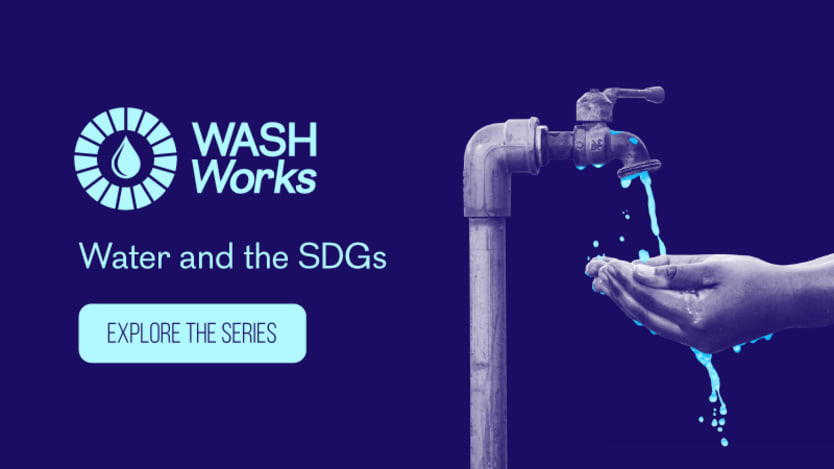The United Nations has launched a new “Group of Friends” in support of water, sanitation, and hygiene — or WASH — in health care facilities.
Groups of Friends is a coalition made up of various U.N. member state representatives who come together to focus on advancing progress on a particular issue. Other groups include that of mediation; children and armed conflict; and climate and security.
Having a group focussed on WASH in health care facilities could be instrumental in mobilizing activities across the entire U.N. system, Bud Rock, former principal of Global Water 2020, told attendees at the groups’ launch event. “The group sends a powerful message that resonates throughout the U.N. system: WASH in health care facilities is foundational for strong health systems and universal health coverage. It is key to the success of the Sustainable Development Goals,” he said.
As it stands, 1 in 3 health care centers around the world have no hand-washing facilities, and in 2019, 25% lacked clean water.
As a result, “hundreds of thousands of health care facilities are not centers of healing, but rather centers of infection,” Zsuzsanna Horváth, permanent representative of Hungary to the U.N., said at the event.
Amid the COVID-19 pandemic, advocates have called for WASH gaps to be addressed, highlighting how inaccess can lead to the spread of other illnesses as well as infection. Over 1 million deaths annually are associated with unclean births, and 10 out of 100 hospitalized patients in low- and middle-income countries will acquire a health care-associated infection.
Untreated wastewater and fecal sludge from health care facilities — which can contain antibiotics as well as resistant pathogens and genes — also increases the potential for antimicrobial resistance.
The new group — which includes U.N. representatives from Colombia, Thailand, and Egypt, and is chaired by Hungary and the Philippines — aims to raise awareness of the issue, advocate for action, and improve cooperation and collaboration around the issue.
“We hope we can effectively and efficiently work together with the collected member states and make progress regarding our challenges,” Horváth said.
The creation of the group, she said, is in response to the global call to action U.N. Secretary-General António Guterres made in 2018 concerning universal WASH in health care facilities.
This was followed by the signing of a WASH in health care facilities resolution by ministers at the 2019 World Health Assembly that would see countries committed to developing national road maps, setting targets, increasing investments, and strengthening systems around the issue.
“Hundreds of thousands of health care facilities are not centers of healing, but rather centers of infection.”
— Zsuzsanna Horváth, permanent representative of Hungary to the U.N.Historically, one of the biggest issues has been funding. Less than 14% of countries say they have what they need to implement WASH improvement plans.
But Dr. Tedros Adhanom Ghebreyesus, director-general of the World Health Organization, told event attendees that WASH in health care facilities was one of the best investments they could make. He urged countries to implement the recommendations in the joint global progress report on WASH in health care facilities by UNICEF and WHO as a starting point.
These include implementing national road maps with appropriate financing, monitoring progress, supporting the health workforce to sustain WASH services and practices, and integrating WASH into health programming, including the COVID-19 response.
The group will work with other groups of friends — such as those focussed on neglected tropical diseases and antimicrobial resistance — to jointly tackle SDG 3 on health and well-being and SDG 6 on access to clean water and sanitation, said Enrique Austria Manalo, permanent U.N. representative of the Philippines, said.
Visit the WASH Works series for more coverage on water, sanitation, and hygiene — and importantly, how WASH efforts intersect with other development challenges. You can join the conversation using the hashtag #WASHWorks.

► Was COP 26 a win for the WASH sector?
► Q&A: What WASH work will look like for USAID in 2022 (Devex Pro)
► Podcast: What a lack of water and hygiene can mean for health
